I recently took a look at the new anti-doping education website set up by the UCI in an effort to combat doping, it’s called http://www.truechampionorcheat.org/. The aim behind it is twofold: firstly it attempts to explain the mechanics of the anti-doping framework. Stuff like how TUEs, whereabouts, and the doping control protocol works along with the bare-bones of the anti-doping rules. The second aim (so far as I can tell) has a slight anti-drugs propaganda whiff to it, which to be honest I didn’t really like all that much. Whilst I agree entirely with its intentions, it was pretty clear that it wasn’t going to be very effective. More on that later.
The first thing I clicked upon entering the website was the promotional video starring the rightly- and relentlessly-disgraced Patrick McQuaid. He explains the very noble intentions of the program before going on to admitting to us that even he enjoyed having a go at the odd module himself! I’m sure after that you will understand that this was all the encouragement I needed to have a go myself. I urge you to watch this video right now, it’s on the front page: http://www.truechampionorcheat.org/
The remainder of the video included a bit of spiel from John Fahey of WADA, Anne Gripper (UCI’s former anti-doping manager), a few clips of video from the various modules, and some poor, unfortunate and nervous vox pops from some green young saps at the UCI HQ in Aigle. I imagine they were slightly harassed into making remarks about the whole thing in that slightly patronising “Dance, monkey boy! Dance!” positive reinforcement method that young athletes respond so well to. You could see the need for assurance in their lambish and very wide eyes as they flicked from camera to coach and back again.
The most poignant part for me was the young Irish lad explaining why you shouldn’t dope. It was like something from ‘kids say the funniest things’ only without Bill Cosby, and it wasn’t funny, it was sad. There’ll be more on the young Irish lad in a bit.
So without further ado I signed up and had a go at the first few modules. I’ll be honest, I wanted that diploma more badly even than Pat himself. All the lessons took the form of a series of videos interlinked by very basic exercises that checked if you had been listening. The actors clearly weren’t actors but cyclists and coaches and so on, which I didn’t really mind; in fact it made it all quite charming really, the same goes for the numerous spelling mistakes throughout the website. The production quality and writing gave it the feel of a slightly post-modern school educational video, you know the sort of thing I’m talking about: It tries to be cool, funny and/or relevant but falls flat on its face in one or all areas at any one time. It was a little bit clunky and for anyone with more than around five brain cells it was a touch on the slow side, and when I say “a touch” I mean it was glacial. This was the intention; it was never supposed to be rocket science. Many of the fill-in-the-gaps exercises could be passed using rudimentary grammar skills rather than any anti-doping knowledge.
This method is actually very effective: it drums simple facts into you and makes sure no one too dumb gets lost along the way. It’s there to help the Alex Rasmussens of this world, and everyone else too. It is a mandatory course for anyone on the whereabouts system so it doesn’t really matter if it’s ‘hip’ or not. The nuts and bolts informative educational stuff (which was most of it) about the various processes, TUEs and things was fine. I certainly learnt a few nuances and details about various protocols and so on that I did not know previously. For example did you know that you had to turn both your urine samples upside down to make sure the lids are on tightly?
So despite everything the factual stuff gets a big tick from me, well done UCI, you do not please me easily but for this one thing I will give you credit.
Now onto the part where it all falls down: the subtle whiff of unconvincing anti-doping propaganda. The righteous, simple, wholly correct but utterly pointless message that “doping is bad” pervades the entire course (and the sport), but to what effect? Well, I would say almost and obviously none. Even Lance Armstrong knows that doping is bad. The final module is a hilariously shoddy tale about the short and long (i.e., potentially permanent) side effects of taking anabolic steroids. Anabolic steroids, for those of us who have seen a cycling doping scandal in recent years, are not exactly in common use amongst cyclists anymore (if ever on the road). I would go as far as to say they are quaint, old fashioned, and easily detected.
The best way to explain what I mean about the anti-doping message can be encapsulated in this equally effective anti-drugs lesson from South Park’s Mr Mackey:
So if WADA, the UCI, staff, and everyone else are telling young riders that drugs are bad (mmkay?) then that isn’t a very effective way to stop riders from taking drugs (mmkay?) It was a very good try though, well done UCI, and if I’m ever in Aigle I will pat John Fahey, Anne Gripper and Pat McQuaid on the head personally (if they permit me to do so – remember kids: unsolicited hair ruffling is a crime and could result in a court case: just say no).
SO MR SMARTYPANTS…
Taking the piss out of the UCI is easier than shooting fish in a barrel; it’s like tipping the barrel over and watching the life flap out of their tiny orangey-gold soon-to-be-lifeless corpses. So what should we do to prevent new pros from doping instead? Well, after briefly perusing some anti-regular-drugs lessons on the Internet I am now an expert on the subject. Apparently the best way to stop young and impressionable people from joining the dark side is to get them to do other things, things that take them out of the drug-taking danger zone. In the post-Lance era, banning professional cycling seems like a great idea but I don’t think it’s really in the interests of the UCI to do this right now. We’ll just have to bypass the most effective method of prevention this time around. We are left instead with one alternative: make riders happily exist in that dangerous zone without being inclined to take drugs, it’s a tough one and will never have a 100% success rate but that doesn’t mean we shouldn’t try.
The other extremely effective anti-drugs lesson involves getting a former drug user to tell everyone how bad it is, as it tends to scare them straight. The trouble is that if any of the users are in any way honest (and they would have to be) they would probably say a selection of the following:
“Hi, I’m Lance Armstrong and I doped, I never tested positive, earned loads of money, and am now world-famous. Even though I’ve now been exposed for the fraud that I am, by the end of all this I will remain rich and famous. I don’t feel any guilt because I did it for charity.”
“Hi, I’m a fairly successful ex-pro and by doping I managed to earn lots of money, never test positive, and gained lots of experience and kudos within the industry. Because of this I now have a second career on the staff of a big team; even though everyone knows I doped, the consequences have been minimal.”
“Hi, I’m an ex-pro from the nineties, I made a great career and never tested positive, not even once. I am still famous now and living off my good name, unlike all the people that didn’t dope or even turn pro.”
“Hi, I’m an ex-pro that tested positive and served a two-year ban but everyone forgave me and welcomed me back with open arms again. I did the crime, I did the time. I’m still doping now, or not, whatever, either way you can’t tell and neither can my sponsors.”
“I don’t feel that guilty about what I did, everyone else did it/does it.”
“I doped for 15 years but then felt as guilty as hell and stopped doing it for a few years afterwards before retiring. There is no way I would have been able to race at the level/salary I had been if I were riding clean had it not been for the long and prestigious palmares earned beforehand whilst doped.”
“Anyone in my situation would have done the same thing.”
“Can’t you people see that I am a victim?”
“I raced for years doped, made a mistake, tested positive, and now I’m an anti-doping crusader. I continue to earn a good living racing clean, but only off the back of the results from my doped career. I’m not nearly so good now but it hardly matters, I get to make a good living clean these days, I’m living the dream. I’m also an anti-doping crusader.”
“Even though I’ve recently been sacked from a team as a staff member because I doped a long time ago, my intention is to stay within the sport. I fully expect to be given a job because all the experience I have gained over the years is valuable. I gained that experience because I chose to dope; had I not chosen to dope I wouldn’t have the experience.”
“My heartfelt admission and guilty conscience of many years is exactly the same as being punished for what I did wrong. I feel a bit guilty but you know, not THAT guilty, more of a victim actually.”
“Doping was the result of my ambition and determination to succeed, I was in a very competitive environment, I’m a very competitive person and it was therefore inevitable that I would dope, there was basically no alternative. That’s what I tell myself anyway.”
If you go by the history and culture of professional cycling, look at the career paths of dopers and clean athletes, look at things selfishly, logically and pragmatically – then doping pays big time. It looks to me like you can often get away with it, even after you test positive, even if you refuse to put your hands up and admit to what you’ve done. It’s always been like that and any aspiring cyclist wanting to turn pro should temper their ambitions by making the same assumption. Now if that isn’t an argument for zero tolerance (yes, perhaps after some kind of amnesty), and the criminalisation of sporting fraud I don’t know what is.
Now that the regular drugs lessons are out the window, how do you teach a rider not to dope when the consequences are either minimal or completely non-existent? It’s a difficult question that doesn’t really have an easy answer.
All I can see is that poor Irish guy in the first video and be reminded of Paul Kimmage and his book Rough Ride. It tells the story of someone going from an anti-doping stance as weak but well-meaning as the young lad in the video to eventually deciding to dope. The pressure cooker Kimmage was in wasn’t as intense as the one EPO and institutionalised doping created later (and to wildly varying degrees probably persists today), but he still succumbed. The book covers every ethical line in the sand that a rider crosses in order to eventually dope before undertaking the act himself.
I have this policy with hypothetical situations of always doing the right thing; in fact we always do the right thing in a hypothetical situation. Why? It’s because we get to discuss all the angles and reflect on all the consequences with a cool head before making our decision, something someone in a real situation is rarely able to do. In the case of doping, none of us would ever dream of doing it – as fans it repulses us, as riders it disgusts and scares us, even after reading Rough Ride, even after Lance Armstrong, even after all those (admittedly not real) quotes above – we wouldn’t dope, what steadfast hypothetical moral compasses we have! Perhaps in a particularly arrogant drunken post-dinner party-style discussion we wouldn’t dope even if we knew for certain that you could, that it’s undetectable, and that it definitely works. This is a worst-case assumption that I will forever take to be true – the worst part being the flip-side that you can never prove your innocence if clean.
Morality is its own reward. You don’t get a bunch of flowers and a peck on the cheek from a podium girl for being moral. You don’t get points for showing off about it (you’ll more likely get a well-deserved put down), and you probably won’t win as much or have as successful a career for it. Staying clean could (but these days probably won’t) be the thing that stops you from going home and getting a proper job.
It isn’t that difficult to turn a weak anti-doping morality in young people into a strong one if they are already on your side, which – unless already corrupted by someone else – they always are. The way to make this happen is to let them know the long and dirty history of cycling, every gritty last little detail, without any tale of morality sewn in, let them make their own decision based on the facts; since it’s hypothetical they should always hopefully choose not to dope. The UCI “true champion or cheat program” fails to do this, and they are letting riders down as a result.
There are young riders in the peloton right now who are riding clean and doing very well. For many of them, their decision to be clean is based on the following assumptions:
- That no one else is doping.
- That the testing works 100% of the time.
- That doping is difficult to do properly.
- That doping “isn’t worth it.”
Whether these assumptions are true or not is beside the point, they are only assumptions. Trusting other riders, trusting the testing, and trusting the UCI after all that’s happened is simply stupid; these people should be trusting themselves instead. If you are going to assume anything, then assume the worst and go from there.
So if you can digest all that, make all the worst assumptions about the sport, and still be willing to give everything as a clean professional then be my guest, you deserve that diploma.

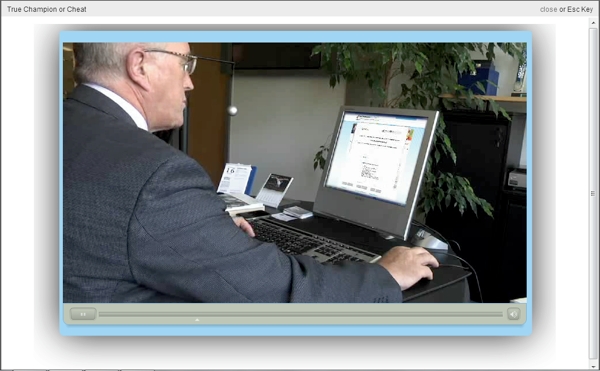
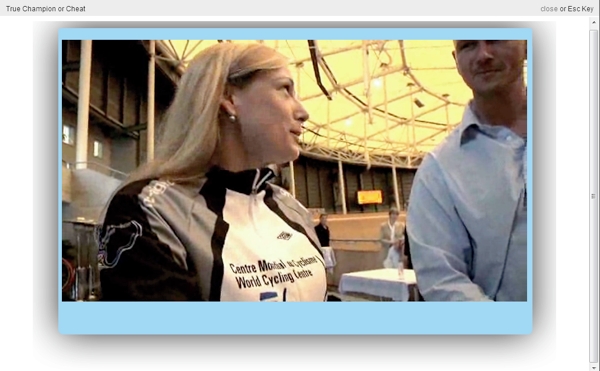
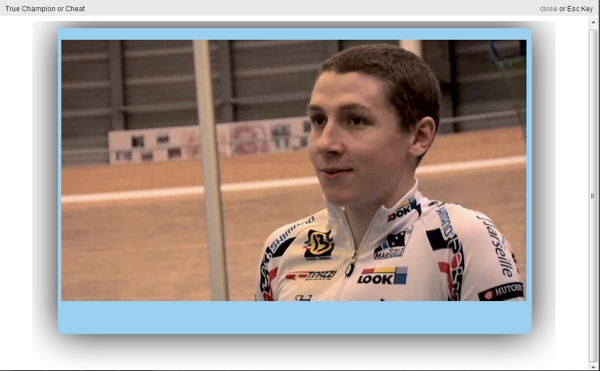
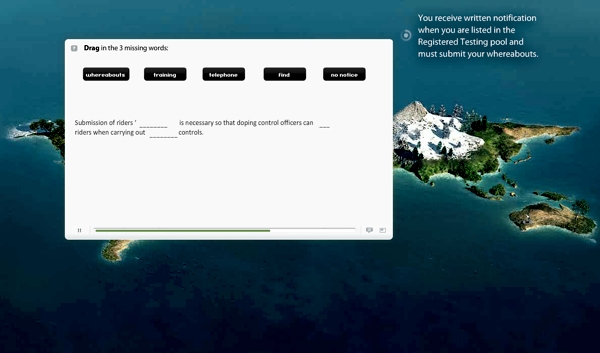
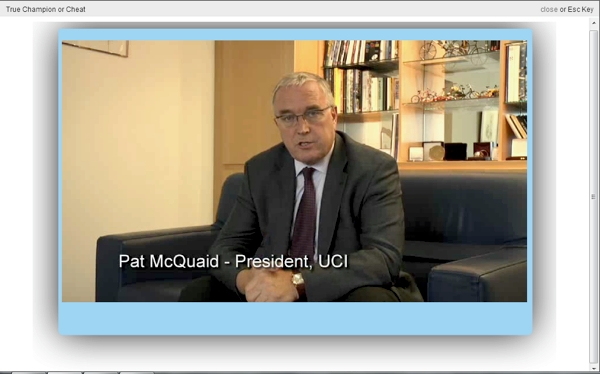
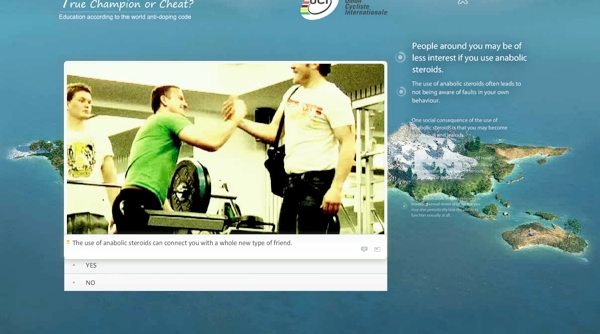
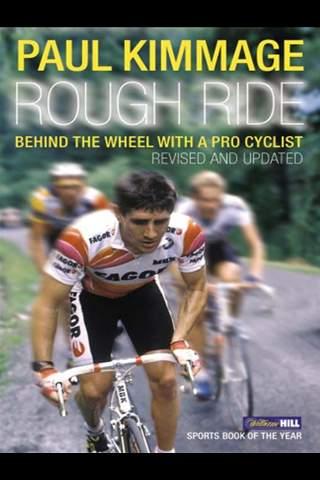

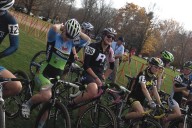
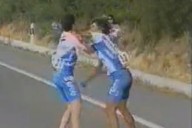
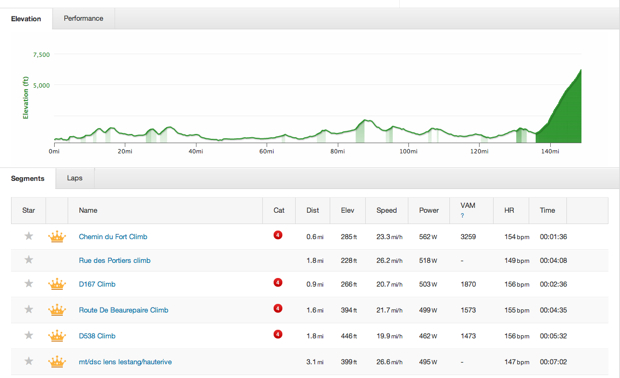


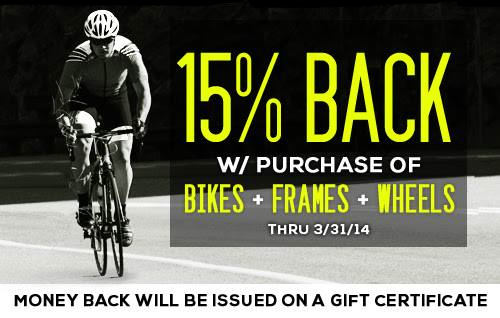

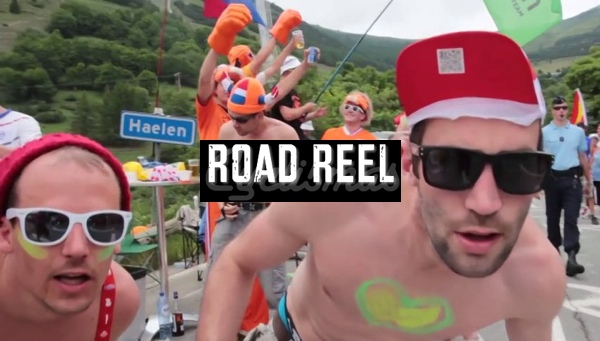
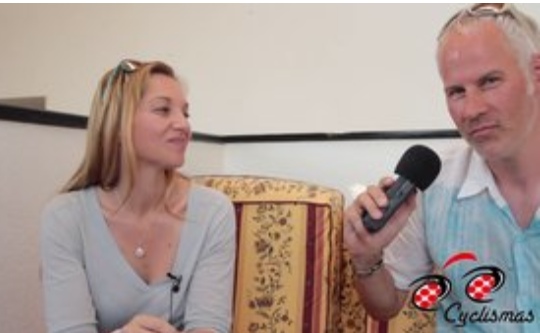
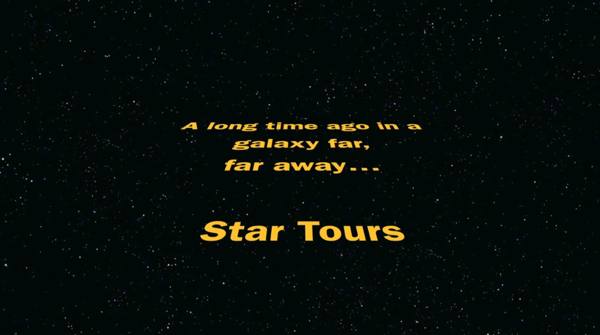
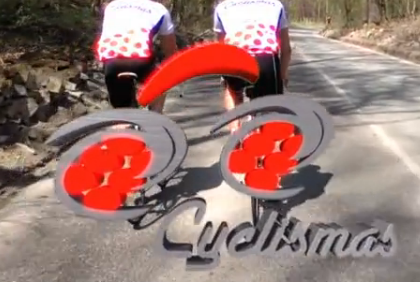

3 Comments
You lost me at turning the urine samples upside-down to test if the cap is tight. For the love of God, WHAT IF IT’S NOT!??!?!!!!1!!!
Have a look at the first line. Are they making reference to anyone? Freudian slip?
http://wednesdaylegs.files.wordpress.com/2012/10/capture22.png?w=584
So I took it upon myself to complete the program. So now I have a Certificate saying, “you have succesfully completed the True Champion or Cheat program.” Does it mean True (Champion or Cheat) in a mathematical sense?
Say in “Breaking the rules” they show the dilemma: “But I can keep my gold medals from two years ago?”
So isn’t the message more like, do not get caught! Just like mentioned in this excellent post, you dope, you earn, you get caught – but you still have the money.
In respect to TdFLanterne: I scratched my head, when in the video “Doping Control” they measure the refractive index to decide if the urine is of “sufficient quality”. I can only imagine, they check if it is urine at all and not e.g. orange juice. Never actually heard of insufficient quality urine.
True Champ or True Cheat? I’ll make up my mind and answer that in two weeks time.